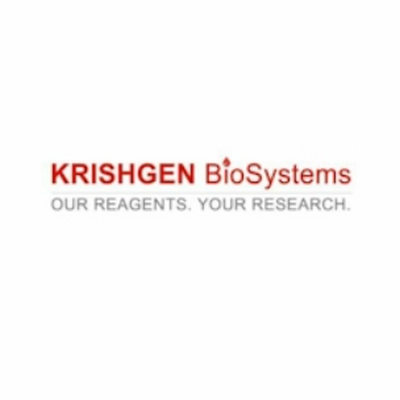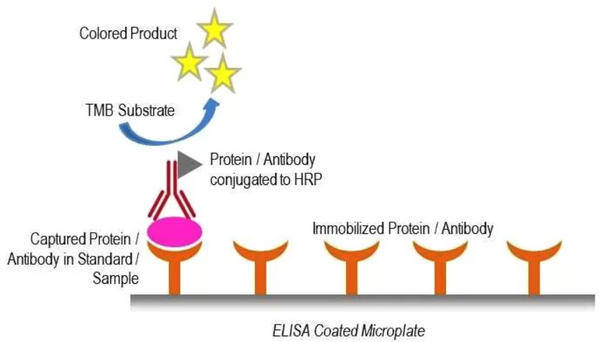Monoclonal antibody (mAb)-based enzyme-linked immunosorbent assay (ELISA) is a cornerstone technology in the fields of diagnostics, research, and biotechnology. This sensitive, specific, and versatile assay allows scientists and clinicians to detect and quantify a wide range of biomolecules, from proteins and hormones to pathogens and drugs. In this blog, we will explore the importance of mAb-based ELISA, its various applications, and why it continues to be a preferred choice in many scientific and medical settings.
What is MAb-Based ELISA?
ELISA is a biochemical technique used to detect the presence of an antigen (usually a protein) in a sample. The "mAb" in mAb-based ELISA refers to monoclonal antibodies, which are antibodies derived from a single clone of cells. These antibodies are highly specific to a particular antigen, making them ideal for use in ELISA tests.
In a typical mAb-based ELISA, the process begins with coating a microplate with the antigen of interest. Monoclonal antibodies specific to this antigen are then added, and they bind with high specificity. A secondary antibody, which is linked to an enzyme, is introduced next. This enzyme acts on a substrate added later in the process to produce a measurable signal, usually a color change, that indicates the presence and amount of the antigen.
Advantages of mAb-Based ELISA
1. High Specificity
Monoclonal antibodies are highly specific to their target antigen, which significantly reduces the likelihood of cross-reactivity with other molecules. This specificity makes mAb-based ELISA an ideal choice for assays requiring precise detection of a particular biomolecule.
2. High Sensitivity
The enzyme-linked detection system in ELISA is highly sensitive, allowing for the detection of minute quantities of antigen. This makes mAb-based ELISA especially useful in clinical diagnostics where early detection of disease markers is critical.
3. Quantitative and Qualitative Analysis
ELISA can be used both for quantitative and qualitative analysis. By comparing the assay results to a standard curve, the exact concentration of an antigen in a sample can be determined. Alternatively, the presence or absence of an antigen can be detected, which is useful for simple diagnostics.
4. Versatility
mAb-based ELISA can be adapted to detect a wide range of antigens, including proteins, peptides, hormones, and even small molecules like drugs or environmental contaminants. This versatility makes it a valuable tool in various fields, including clinical diagnostics, food safety, environmental monitoring, and pharmaceutical research.
Applications of mAb-Based ELISA
1. Clinical Diagnostics
One of the most common applications of mAb-based ELISA is in clinical diagnostics. It is routinely used to detect disease markers, such as antigens or antibodies related to infections like HIV, hepatitis, and COVID-19. ELISA is also used to measure hormone levels, detect allergens, and screen for drugs in biological samples. The high sensitivity and specificity of mAb-based ELISA make it indispensable in early disease detection, guiding treatment decisions and monitoring patient responses.
2. Pharmaceutical Research and Development
In pharmaceutical research, mAb-based ELISA is widely used for drug screening and development. It is employed to quantify therapeutic proteins and antibodies in various stages of drug development, from discovery to clinical trials. ELISA can also be used to monitor immune responses in vaccine development, ensuring that candidate vaccines elicit the desired immune reaction.
3. Food Safety
The food industry relies on mAb-based ELISA to ensure the safety and quality of products. ELISA is used to detect allergens, pathogens, and contaminants in food. For example, it can identify the presence of gluten in "gluten-free" products or detect trace amounts of pesticides in fruits and vegetables. The ability to rapidly and accurately test food products helps prevent allergic reactions, foodborne illnesses, and ensures compliance with safety regulations.
4. Environmental Monitoring
Environmental scientists use mAb-based ELISA to monitor pollutants and toxins in water, soil, and air. This application is particularly important for detecting environmental contaminants like pesticides, herbicides, and heavy metals. ELISA’s sensitivity allows for the detection of low levels of these harmful substances, helping to protect ecosystems and human health.
5. Biotechnology and Research
In academic and industrial research, mAb-based ELISA is a fundamental tool for studying protein interactions, gene expression, and cellular pathways. Researchers use ELISA to quantify proteins in cell lysates, tissue extracts, and serum samples. This technique is essential for understanding the molecular mechanisms underlying diseases and for developing new therapeutic strategies.
Challenges and Future Directions
While mAb-based ELISA is a powerful tool, it is not without its challenges. One limitation is the potential for non-specific binding, which can lead to false positives or negatives. This issue can often be mitigated by optimizing assay conditions and using well-characterized antibodies.
Another challenge is the need for highly specific and high-affinity monoclonal antibodies. The production of these antibodies can be time-consuming and expensive, which may limit the accessibility of certain assays. However, advancements in recombinant antibody technology are making it easier to produce high-quality monoclonal antibodies more efficiently.
Looking ahead, the future of mAb-based ELISA looks promising. Advances in nanotechnology, microfluidics, and multiplexing are enhancing the sensitivity, throughput, and ease of use of ELISA assays. These innovations are likely to expand the applications of ELISA even further, making it an even more indispensable tool in diagnostics and research.
Conclusion
MAb-based ELISA remains a vital technique in modern science, offering unparalleled sensitivity, specificity, and versatility. Its applications in clinical diagnostics, pharmaceutical research, food safety, environmental monitoring, and biotechnology highlight its importance across multiple fields. As technology advances, mAb-based ELISA will continue to evolve, providing even more powerful tools for scientists and clinicians to explore the complexities of biology and medicine.



